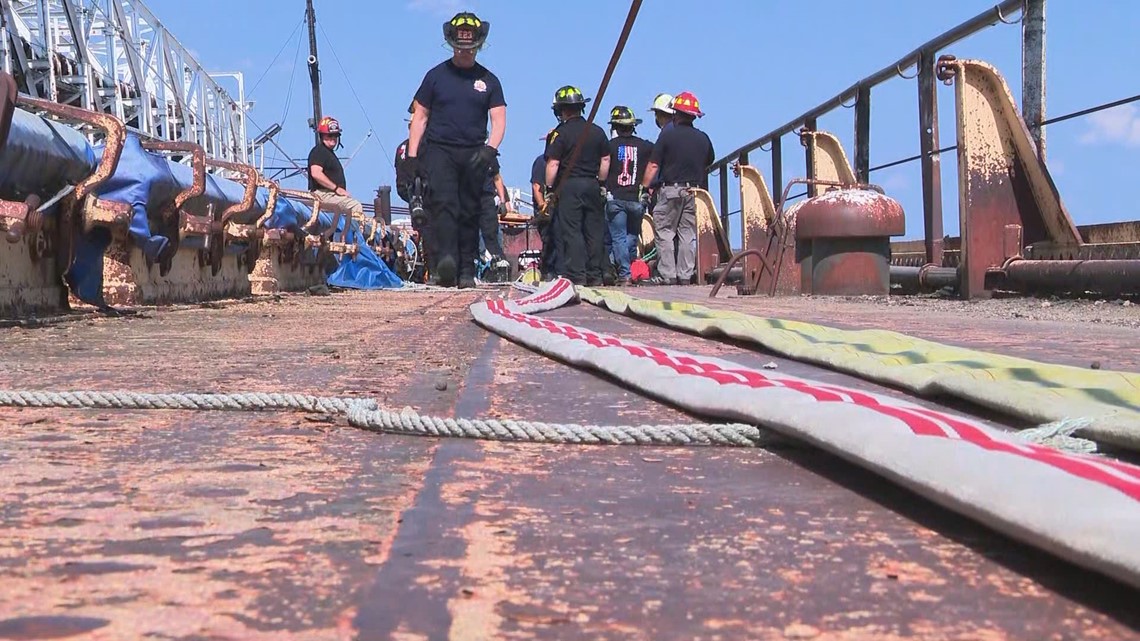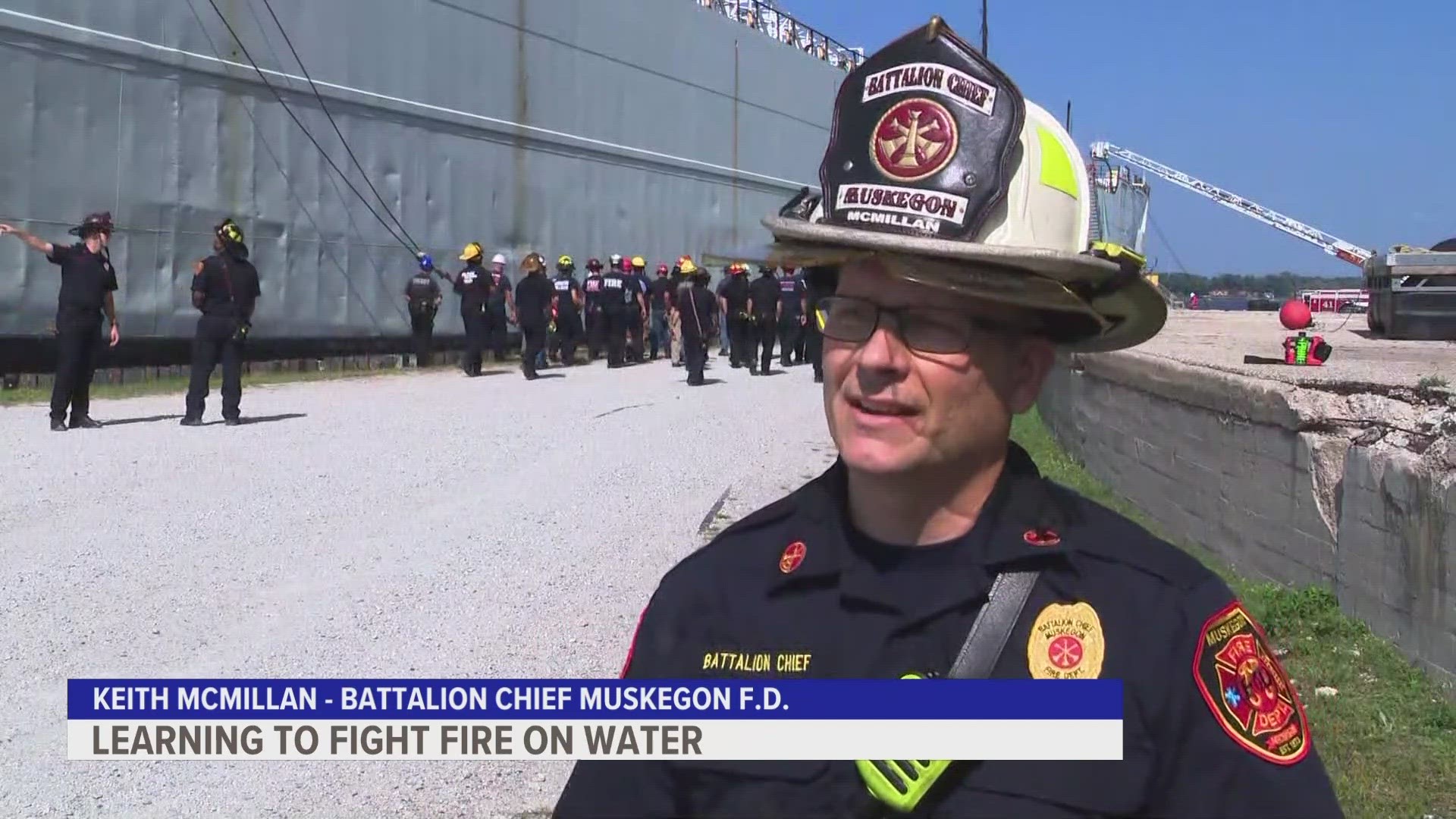MUSKEGON, Mich. — The average person thinks of fighting fires as a pretty simple process. Take water or other chemicals, apply them to a fire, and call it a day.
However, this is very far from the truth. In fact, every fire is different and certain types of fires can be far more dangerous and challenging than others to fight. This is especially true when it comes to fighting fires on boats and ships, which officials tell us are always treated as a hazmat situation.
Keith McMillan, a Battalion Chief with the Muskegon Fire Department, told us, "There's a lot of different things that we're dealing with when you're dealing with ship fires, they're automatically a hazmat incident. There's different chemicals aboard, they're usually built of steel construction, and so the way that we approach a regular structure fire in a residence or something is, this is completely different."
Keith and the Muskegon Fire Department were participating this week in training provided by the Tri-State Maritime Safety Association. This was a basic level of training designed to give the minimum job performance standards for fighting marine fires, and to be used as a base to build upon with future training operations.


Keith said, "In 2021 the Muskegon Fire Department took part in an effort that was spearheaded by the United States Coast Guard, it's called the Great Lakes Marine Firefighting Task Force. As part of that task force, we've identified some key areas in the Great Lakes region that need to be worked on. Some of those key areas are our training for marine based firefighting for land based firefighters, resource allocation, and incident action plans for port city communities all throughout Great Lakes."
These types of plans can be incredibly important due to how intensive fighting a maritime fire can be.
Keith continued, "One of the biggest things is like recognizing how labor intensive this is. Just for an initial attack on one of these ships, if we're going to make an offensive attack, the recommendation is a minimum of 63 firefighters to make that effort. The City of Muskegon, we're right now between 7 and 9 [per shift] on-duty city wide. So to make that a viable offensive attack, we have to draw from resources all over."
Keith says they hope to continue this training and to study more advanced topics in the years to come, with the ultimate goal of keeping our waters and our environment safe and protected!
-- Meteorologist Michael Behrens
Follow me on social media! Facebook Meteorologist Michael Behrens, X/Twitter @MikeBehrensWX, and Instagram/Threads @MikeBehrensWX.
Email me at: MBehrens@13OnYourSide.com
Have a 30-second video or still photo to share? We'd love to share it with everyone! Email your image to Weather@13OnYourSide.com or post it to our 13OnYourSide Facebook Page.
►Make it easy to keep up to date with more stories like this. Download the 13 ON YOUR SIDE app now.
Have a news tip? Email news@13onyourside.com, visit our Facebook page or X/Twitter. Subscribe to our YouTube channel.

